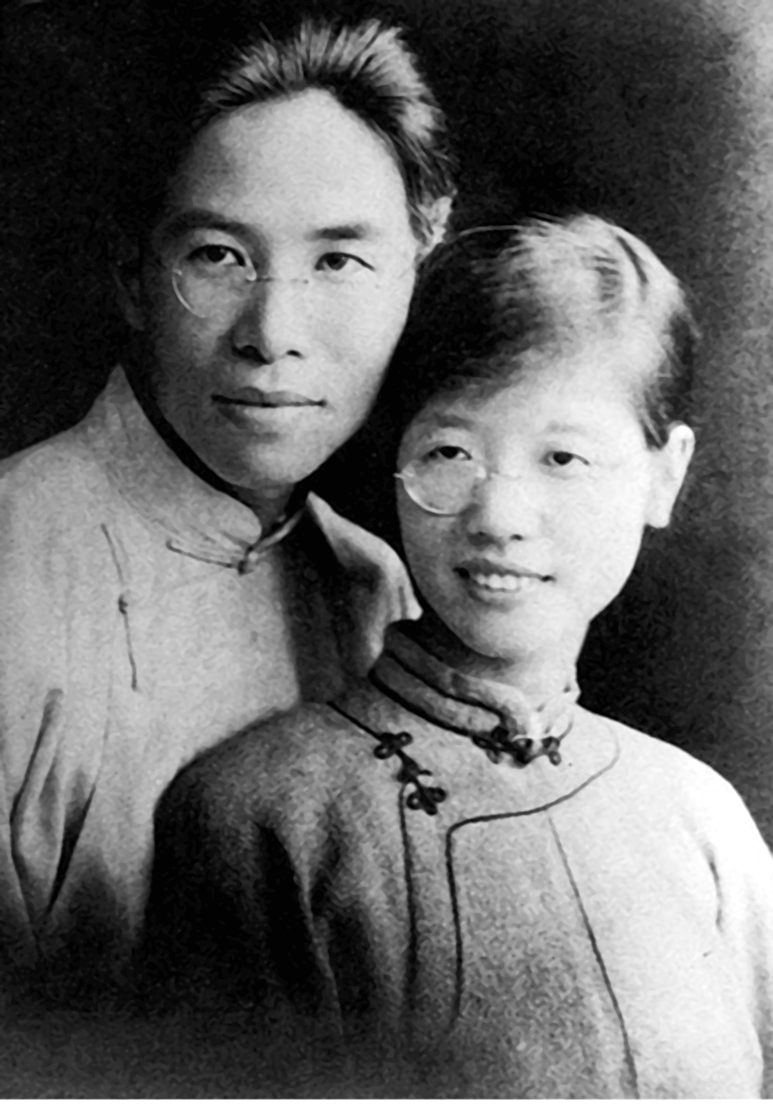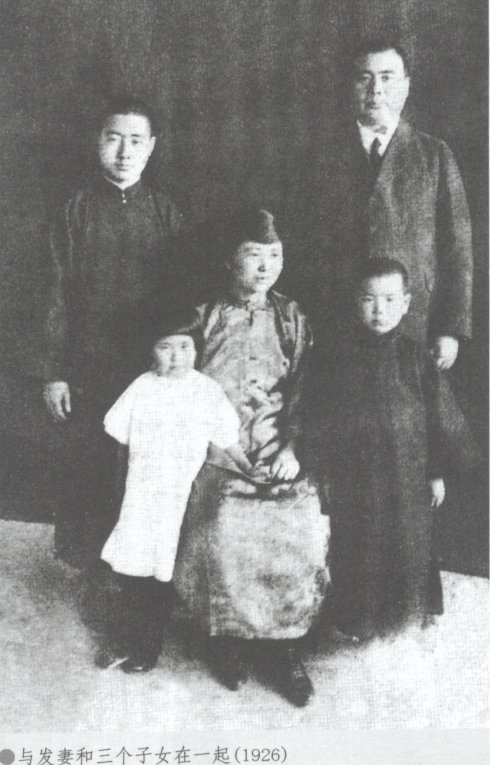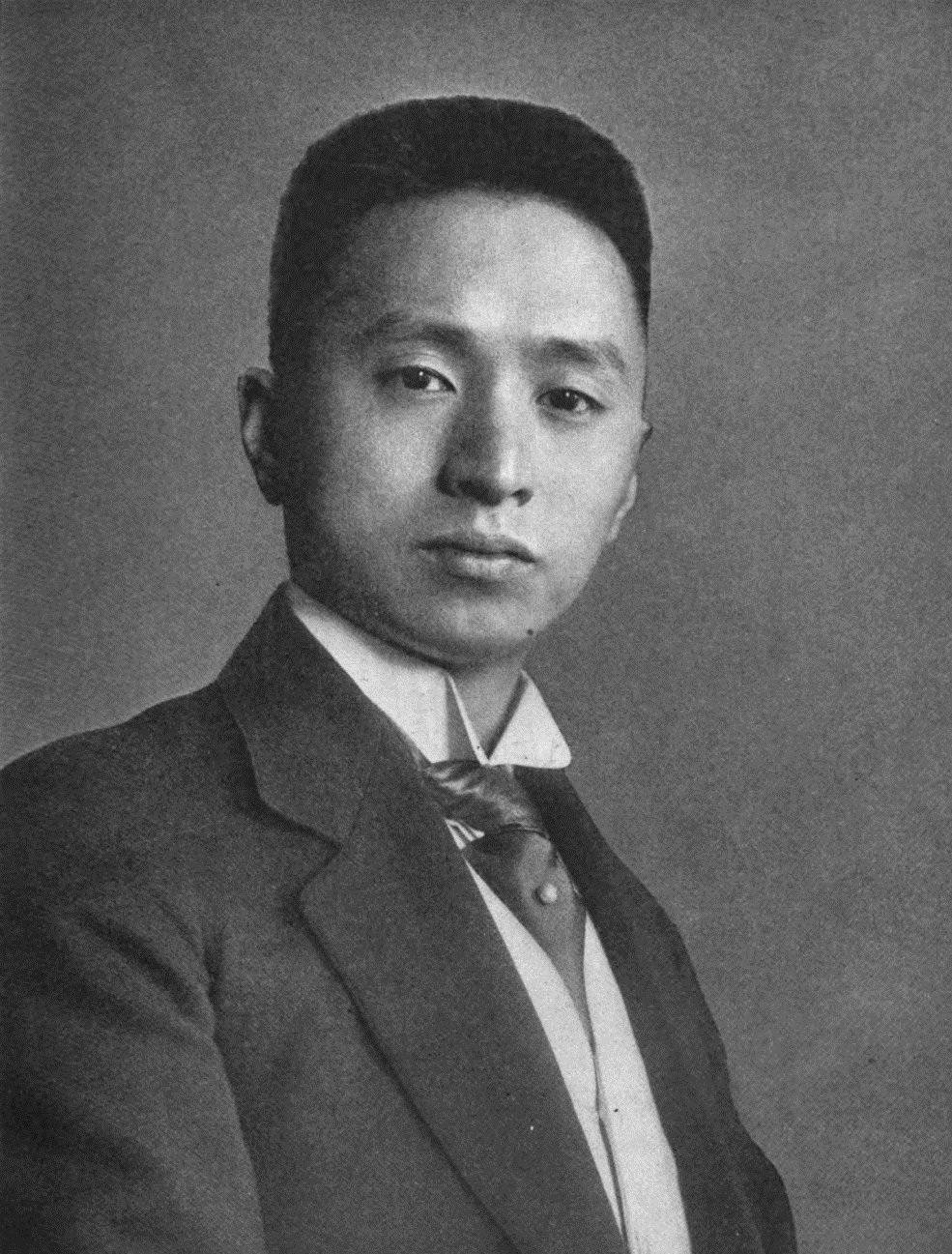|
Wen Yuan-ning
Wen Yuan-ning ( 1900-1984), also known as Oon Guan-neng, was a Chinese professor, writer, and diplomat. Wen Yuan-ning was born in Bangka Island, Bangka off Sumatra, formerly of the Dutch East Indies and now of Indonesia, to an immigrant Chinese Hakka people, Hakka family. He grew up in Bangka and Singapore and went on to study in England where he registered under the Hakka name of Oon Guan-neng at King's College, Cambridge. After receiving his B.A. Hons. and LLB degrees, Wen moved to China and took the Mandarin transliteration of his name Wen Yuan-ning. Wen became a professor of English language and literature in 1925, teaching at various institutions including Peking University, Tsinghua University, Peking Women’s College of Education in 1920s Peking and Kwang Hua University in 1930s Shanghai. Some of his notable students were Liang Yuchun, Qian Zhongshu, Cao Yu, Li Jianwu. He became a contributing editor of the English-language weeklThe China Critic(1928–1940, 1946)url=http ... [...More Info...] [...Related Items...] OR: [Wikipedia] [Google] [Baidu] |
Bangka Island
Bangka is an island lying east of Sumatra, Indonesia. It is administered under the province of the Bangka Belitung Islands, being one of its namesakes alongside the smaller island of Belitung across the Gaspar Strait. The 9th largest island in Indonesia, it had a population of 1,146,581 at the 2020 census. It is the location of the provincial capital of Pangkal Pinang, and is administratively divided into four regencies and a city. Geography Bangka is the largest landmass of the province of the Bangka Belitung Islands. It lies just east of Sumatra, separated by the Bangka Strait; to the north lies the South China Sea, to the east, across the Gaspar Strait, is the island of Belitung, and to the south is the Java Sea. It is about 12,000 km². Most of its geography consists of lower plains, swamps, small hills, and beautiful beaches. It has white pepper fields, many palm trees and rubber trees, and well-known tin mines. The island's largest city, Pangkal Pinang, is also the c ... [...More Info...] [...Related Items...] OR: [Wikipedia] [Google] [Baidu] |
Hu Shih
Hu Shih (; 17 December 1891 – 24 February 1962), also known as Hu Suh in early references, was a Chinese diplomat, essayist, literary scholar, philosopher, and politician. Hu is widely recognized today as a key contributor to Chinese liberalism and language reform in his advocacy for the use of written vernacular Chinese. He was influential in the May Fourth Movement, one of the leaders of China's New Culture Movement, was a president of Peking University, and in 1939 was nominated for a Nobel Prize in literature. He had a wide range of interests such as literature, philosophy, history, textual criticism, and pedagogy. He was also an influential redology scholar and held the famous Jiaxu manuscript () for many years until his death. Biography Early life Hu was born on December 17, 1891, in Shanghai to Hu Chuan () and his third wife Feng Shundi (). Hu Chuan was a tea merchant who became a public servant, serving in Manchuria, Hainan, and Taiwan. After Hu Shih's birth, Hu ... [...More Info...] [...Related Items...] OR: [Wikipedia] [Google] [Baidu] |
Ling Shuhua
Ling Shuhua (; March 25, 1900–1990), also known as Su-hua Ling Chen after her marriage, was a Chinese modernist writer and painter whose short stories became popular during the 1920s and 1930s. Her work is characterized by her use of symbolism and ''boudoir literature.'' Biography Ling Shuhua was born Ling Ruitang on March 25th 1904 in Beijing. Shuhua was the daughter of the third concubine of a high ranking Qing official, Ling Fupeng, from the southern province of Canton, who later served as the mayor of Beijing. She had a younger sister, Amy Ling Shuhao, who married K. K. Chen. She lived in the familial mansion until the age of seven; she then was sent to Kyoto to study. In 1922, Ling Shuhua enrolled Yenching (Yanjing) University in Beijing, studied French, English and Japanese. She went to school alongside the poet and writer Bing Xin. And in 1924, Ling met Chen Yuan in Beijing. At the time, Chen Yuan was an English professor at Peking University, an influential literary ... [...More Info...] [...Related Items...] OR: [Wikipedia] [Google] [Baidu] |
Lim Boon Keng
Lim Boon Keng (; 18 October 1869 – 1 January 1957) was a Peranakan physician who advocated social and educational reforms in Singapore in the early 20th-century. He also served as the president of Xiamen University in China between 1921 and 1937. Beginning Life Lim was born on 18 October 1869 in Singapore, Straits Settlements as the third generation of a Peranakan with ancestry from Haicheng Town, Longhai City, Fujian Province based from his grandfather Lim Mah Peng who first emigrated to Penang, Malaya in 1839, where he married a Straits-born Chinese woman. Lim Mah Peng would later move to Singapore where his only son, Lim Thean Geow (), the father of Lim Boon Keng, was born. Lim studied at Raffles Institution. However, the death of his parents during his childhood inspired him to pursue a career in medicine. In 1887, Lim became the first Singaporean to receive a Queen's Scholarship. He gained admission to the University of Edinburgh and graduated in 1892 with a first-cl ... [...More Info...] [...Related Items...] OR: [Wikipedia] [Google] [Baidu] |
Feng Yuxiang
Feng Yuxiang (; ; 6 November 1882 – 1 September 1948), courtesy name Huanzhang (焕章), was a warlord and a leader of the Republic of China from Chaohu, Anhui. He served as Vice Premier of the Republic of China from 1928 to 1930. He was also known as the "Christian General" for his zeal to convert his troops and the "Traitorous General" for his penchant to break with the establishment. In 1911 he was an officer in the ranks of Yuan Shikai's Beiyang Army but joined forces with revolutionaries against the Qing dynasty. He rose to high rank within Wu Peifu's Zhili warlord faction but launched the Beijing Coup in 1924 that knocked Zhili out of power and brought Sun Yat-sen to Beijing. He joined the Nationalist Party (KMT), supported the Northern Expedition and became blood brothers with Chiang Kai-shek, but resisted Chiang's consolidation of power in the Central Plains War and broke with him again in resisting Japanese incursions in 1933. He spent his later years supporti ... [...More Info...] [...Related Items...] OR: [Wikipedia] [Google] [Baidu] |
Puyi
Aisin-Gioro Puyi (; 7 February 1906 – 17 October 1967), courtesy name Yaozhi (曜之), was the last emperor of China as the eleventh and final Qing dynasty monarch. He became emperor at the age of two in 1908, but was forced to abdicate on 12 February 1912 during the Xinhai Revolution. His era name as Qing emperor, Xuantong (Hsuan-tung, 宣統), means "proclamation of unity". He was later installed as the Emperor Kangde (康德) of the Japanese puppet state of Manchukuo during World War II. He was briefly restored to the throne as Qing emperor by the loyalist General Zhang Xun from 1 July to 12 July 1917. He was first wed to Empress Wanrong in 1922 in an arranged marriage. In 1924, he was expelled from the palace and found refuge in Tianjin, where he began to court both the warlords fighting for hegemony over China and the Japanese who had long desired control of China. In 1932, after the Japanese invasion of Manchuria, the puppet state of Manchukuo was established by Japan ... [...More Info...] [...Related Items...] OR: [Wikipedia] [Google] [Baidu] |
George Yeh
George Kung-chao Yeh (1904–1981), also known as Yeh Kung-chao, was a diplomat and politician of the Republic of China. Educated in the U.S. and the U.K., he graduated from Amherst College in 1925 and later Cambridge University. He taught English literature at Beijing's Tsinghua University, where his students included renowned 20th century Chinese writer Ch'ien Chung-shu. He was the first Minister of Foreign Affairs since 1949. During his tenure, he signed the Sino-Japanese Peace Treaty in 1952 and the Sino-American Mutual Defense Treaty in 1954. He was ambassador to the United States from 1958 to 1961. In 1961, due to the admission of Mongolia to the United Nations, Yeh was removed from the position of ambassador and recalled to Taiwan by Chiang Kai-shek. He then served as Minister without Portfolio. See also * Mongolia–Taiwan relations At its establishment in 1912, the Republic of China claimed to be the successor state to the entirety of the Qing empire, which included ... [...More Info...] [...Related Items...] OR: [Wikipedia] [Google] [Baidu] |
Mei Lanfang
Mei Lan (22 October 1894 – 8 August 1961), better known by his stage name Mei Lanfang, was a notable Peking opera artist in modern Chinese theater. Mei was known as "Queen of Peking Opera". Mei was exclusively known for his female lead roles (''dan'') and particularly his " verdant-robed girls" (''qingyi''), young or middle-aged women of grace and refinement. He was considered one of the "Four Great ''Dan''", along with Shang Xiaoyun, Cheng Yanqiu, and Xun Huisheng. Early life Mei Lanfang was born in Beijing in 1894 into a family of Peking opera and Kunqu performers (performers of a traditional Chinese theatre composed of drama, ballet, opera, poetry, and music) of Taizhou, Jiangsu ancestry. Career At age 8, Mei Lanfang started training in Chinese opera skills such as acting, singing and acrobatics. Mei Lanfang made his stage debut at the Guanghe Theatre in 1904 when he was 11 years old playing a weaving girl. In his 50-year stage career, he maintained strong ... [...More Info...] [...Related Items...] OR: [Wikipedia] [Google] [Baidu] |
Ma Junwu
Ma Junwu 馬君武 (1881 in Guilin – 1940 in Guilin) was a celebrated scientist and educator in China and first president of Guangxi University. Biography Ma Junwu was born in Guilin in 1881 and enlisted in one of the new schools for higher education there. Later he went to Shanghai to study French at the Aurora University. With a friend Ma Junwu founded a publishing and translation society. The years 1902 to 1903 Ma Junwu spent in Japan, where he met Sun Yatsen and later became a member of Sun's party. From 1907 onward, Ma Junwu studied in Berlin, where in 1911 he received his engineering degree in metallurgy. After holding various political offices in the Chinese Republic, Ma Junwu returned to Berlin in 1914 to study agricultural chemistry and returned to China with his doctorate degree in 1916. There he resumed leadership positions in various ministries of the government, besides taking up teaching. Ma Junwu translated Charles Darwin's ''On the Origin of Species'' into ... [...More Info...] [...Related Items...] OR: [Wikipedia] [Google] [Baidu] |
Han Fuju
Han Fuju or Han Fu-chü (; 1890 – 24 January 1938) was a Kuomintang general in the early 20th century. He rose up the ranks of the Guominjun clique in the Warlord era but then went over to the Kuomintang, and held the position of military governor of Shandong from 1930 to 1938. Han had one wife, two concubines, and four sons. Biography Early life Han Fuju was born in Dongshantai Village (), Ba County, Hebei Province. He had had little aptitude for schooling. Nonetheless, while quite young, he had worked as a clerk in his hsien ("county") until his gambling debts forced him to run away and enlist in the army of General Feng Yu-hsiang. Han rose quickly, from clerk to chief clerk, to lieutenant, to captain, and after an uprising, to major. During the warlord upheavals in the 1920s, he emerged as commander of General Feng's 1st Army Group. Governor and warlord In 1928, he was appointed chairman (governor) of Henan province by Feng, and in 1929, he was confirmed in offi ... [...More Info...] [...Related Items...] OR: [Wikipedia] [Google] [Baidu] |
Gu Hongming
Gu Hongming in his time known as Ku Hung-ming (; Wade-Giles: Ku Hung-ming; Pinyin: Gū Hóngmíng; Pe̍h-ōe-jī: Ko͘ Hông-bêng; courtesy name: Hongming; ordinary name: 湯生 in Chinese or Tomson in English) (18 July 185730 April 1928) was a British Malaya born Chinese man of letters. He also used the pen name "Amoy Ku". Life Gu Hongming was born in Penang, British Malaya (present day Malaysia), the second son of a Chinese rubber plantation superintendent, whose ancestral hometown was Tong'an, Fujian province, China, and his Portuguese wife. The British plantation owner was fond of Gu and took him, at age ten, to Scotland for his education. He was then known as Koh Hong Beng (the Min Nan pronunciation of his name). In 1873 he began studying Literature at the University of Edinburgh, graduating in the spring of 1877 with an M.A. He then earned a diploma in Civil Engineering at the University of Leipzig, and studied law in Paris. He returned to Penang in 1880, and soon joined ... [...More Info...] [...Related Items...] OR: [Wikipedia] [Google] [Baidu] |
Wellington Koo
Koo Vi Kyuin (; January 29, 1888 – November 14, 1985), better known as V. K. Wellington Koo, was a statesman of the Republic of China. He was one of Republic of China's representatives at the Paris Peace Conference of 1919. Wellington Koo served as an ambassador to France, Great Britain and the United States; was a participant in the founding of the League of Nations and the United Nations; and sat as a judge on the International Court of Justice in The Hague from 1957 to 1967. Between October 1926 and June 1927, while serving as Minister of Foreign Affairs, Koo briefly held the concurrent positions of acting Premier and interim President of the Republic of China. Koo was the first Chinese head of state known to use a Western name publicly. Early life and career (1888–1912) Born in Kating (Jiading), now a suburb of Shanghai, in 1888. Koo grew up in an upper-class cosmopolitan family and was fluent in both English and French, which greatly aided his diplomatic career. ... [...More Info...] [...Related Items...] OR: [Wikipedia] [Google] [Baidu] |







